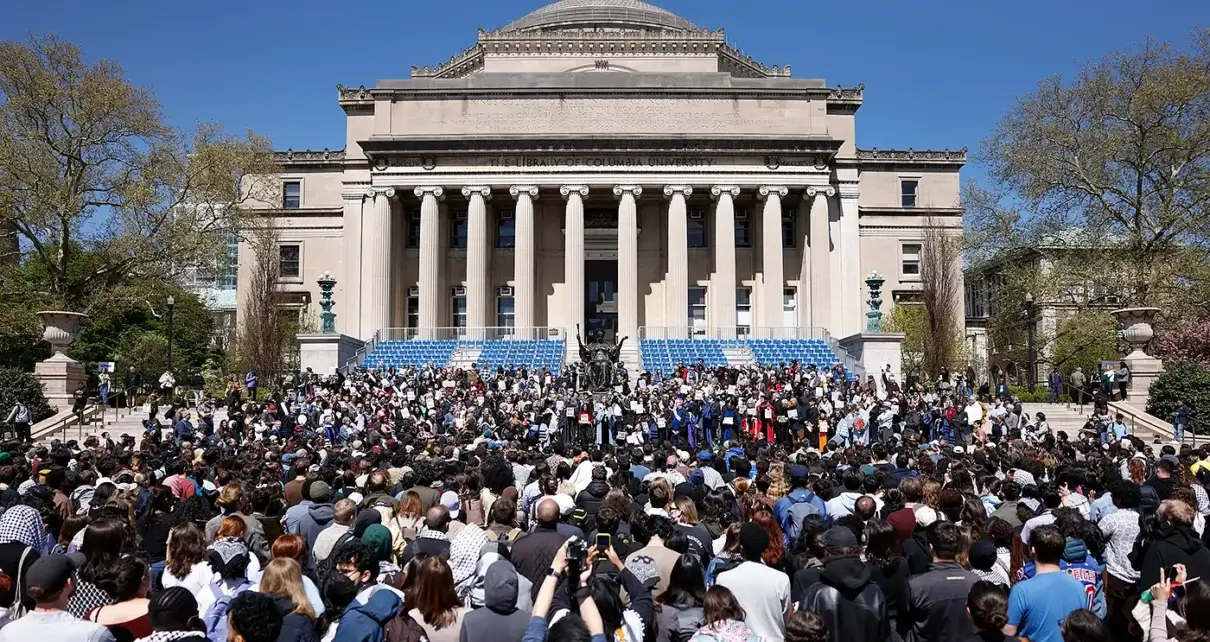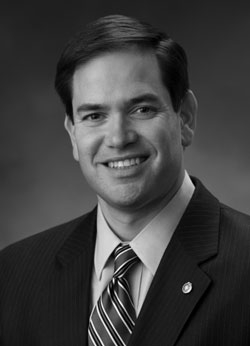In May, more than 70 students were arrested during a sit-in protest at Columbia University, occupying the Butler Library, as reported by The New York Times.
This demonstration quickly gained media attention as police escorted protestors out in handcuffs. At New York University, administrators responded to similar protests with heightened security measures and disciplinary consequences.
For students on those campuses, the demonstrations have raised questions not only about global politics, but also about how safe it is to voice dissent as a student. While Monmouth has not seen demonstrations of this scale in recent years, such protests bring up the broader debate that resonates locally: how would a smaller university respond if their students were to protest?
The protests at Columbia and NYU are not exclusive to those schools alone, but part of a national wave of student demonstrations against the war in Gaza that has intensified in 2025.
At Columbia, several international students, including Mahmoud Khalil and Mohsen Mahdawi, faced the possibility of deportation after being detained during demonstrations. Khalil later said his arrest was unlawful in federal court filings, while Mahdawi returned this semester, declaring, “They have failed to silence me,” according to The Guardian.
At NYU, the most notable disciplinary action was withholding the diploma of graduating senior Logan Rozos after he criticized U.S. support for Israel in his commencement address.
The incident, on top of the other events, drew sharp reactions from students and free speech advocates alike, who argued that peaceful expression was being unfairly punished.
Parents of Columbia students also condemned their university’s handling of the situation, writing in The Guardian, “Columbia punished our kids for protesting against the genocide in Gaza. We condemn the university’s cowardice.”
Similar crackdowns have played out across other campuses, with varying degrees of severity.
Together, these incidents show that universities are struggling to balance free expression with safety, leaving students to weigh the risks of speaking out against the possibility of arrest, disciplinary consequences, or worse.
For Monmouth students, the protests at Columbia and NYU feel both distant and close to home.
Monmouth has had its own moments of activism in recent years, from labor rallies to SGA’s push for greater grade transparency. These events were collaborative and inclusive, which did ultimately lead to administrative responses. For some students, the track record suggests Monmouth provides a safe environment for free speech, though some are not too sure how the university would react if activism ever escalated.
Riley Denker, a senior business major, said, “I think that Monmouth has had a lot of respect for different student voices.”
He continued, “As we’ve seen with previous on campus activism, there’s always a space to speak your mind, but I don’t think Monmouth would be able to handle protests on the same scale as those happening in New York City.”
Giani Garcia, a senior Fine Arts major, who described himself as not politically involved, said, “I would hope they would respond by allowing protests in certain areas as long as they are peaceful. If it got to an extent, then shut it down. I also hope they would allow them to protest against the protest, and keep things going as long as it didn’t get violent.”
As protests continue to ripple nationwide, the weighing decision of whether to speak out is still on the forefront. For many students, the crackdowns at Columbia and NYU serve as a reminder that free expression and campus safety remain a prevalent concern, even on smaller campuses.




